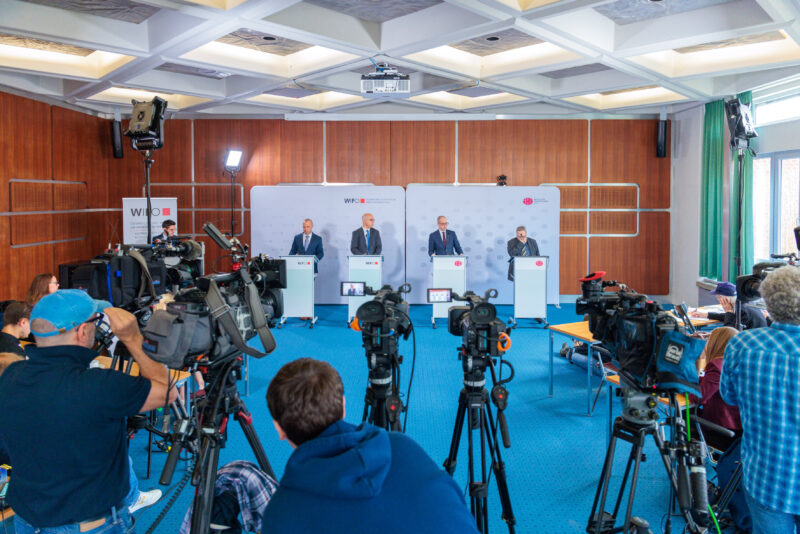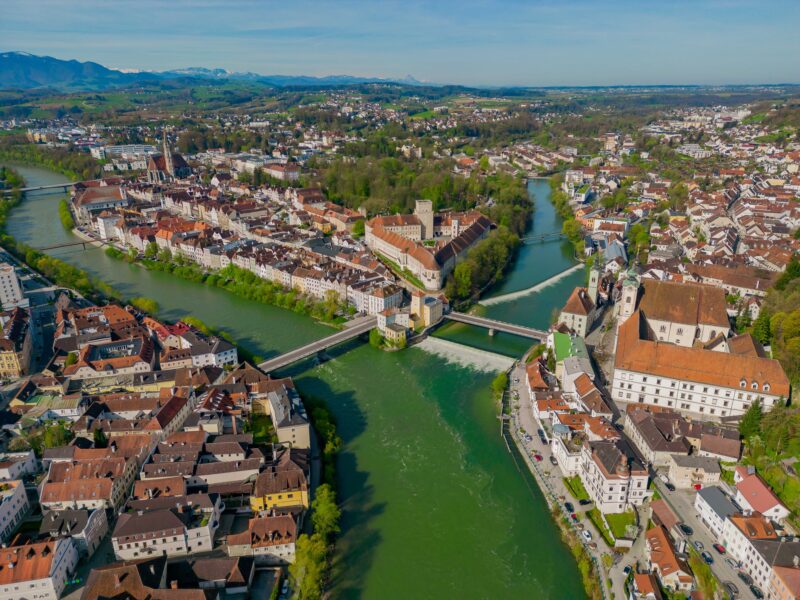
FIW Annual Report on Austrian Foreign Trade Published
This publication consists of several chapters and will deal with a different main focus each year. In addition to the presentation and analysis of the most recent developments in Austrian foreign trade, special attention will be paid to the forecast of future developments. For this purpose, the annual report contains two chapters on the assessment of the short and medium-term development of Austrian foreign trade relations. Against the background of the new trade barriers introduced since 2018, the current Annual Report focuses on this topic and gives it special consideration in the analyses carried out.
The main findings of the Annual Report can be summarized as follows:
For the coming years, the FIW experts expect global export growth to be weaker than in the first two decades of the 21st century. The shift of the economic "centre of gravity" to the east will continue, although China's share in global goods exports will not increase linearly, but will flatten out. By 2024 China could achieve a global export market share of 20 percent. For the EU – excluding the UK – the experts predict an export market share of 15 percent for the EU and 10 percent for the USA by 2024.
Austria's exports are likely to hold their ground and grow by an average of 4 percent per year in the medium term (2020-2024). Austria will thus probably be able to maintain or even slightly increase its current share in EU-wide exports. By 2024 this share should be slightly above 3 percent, partly due to the UK's withdrawal from the EU. According to the forecast, Austria will also consolidate its specialisation in exports of medium technology-intensive products. No major shifts are expected in the main destination countries for Austrian exports. Based on the current data situation, Germany, the USA and Italy will remain the most important export partners. As in previous years, China and the Central and Eastern European EU member countries will gain slightly in importance.
The greatest forecast risk for the results in this annual report is posed by the tense trade policy environment. On the one hand, the additional trade barriers – triggered by trade conflicts – are weighing on the global development of foreign trade. On the other hand, in recent years a record number of trade-restrictive or potentially trade-restrictive measures have been introduced in addition to the well-known trade liberalisation measures, for example by concluding free trade agreements. The future dynamics of global foreign trade will be largely determined by which of the two opposing trade policy orientations will gain in importance and how the rule-based trading system of the World Trade Organization will develop.
Austrian foreign trade can benefit from new trade agreements, and climate policy aspects will gain in importance. With regard to the former, the commitment to further reducing trade barriers with third countries outside the EU, for example by concluding new EU trade agreements, as well as political support for the development of new growth markets, are suitable, among other things.
Austria, as a small open economy, should, in coordination with the EU, work for compliance with and further development of a rule-based trading system. This applies even more strongly to the EU and above all to the European Commission, as it conducts trade policy for all member countries, and the EU has so far been one of the biggest beneficiaries of a rule-based trading system and the establishment of the WTO. ... The new European trade agreements will in all probability support the "European Green Deal" of the new European Commission of Ursula von der Leyen, which is likely to include more ambitious climate protection chapters in the respective agreements.
This creates a policy dilemma on the European level: on the one hand, more free trade could run counter to ambitious climate goals. On the other hand, the question arises as to which policy areas can actually be regulated most effectively through trade agreements and whether other, perhaps new, forms of agreements might be more suitable for achieving climate goals.Irrespective of this, it is important to anticipate the enormous importance of environmental aspects and to support the international competitiveness of climate-friendly technologies and production processes of the Austrian economy. Productivity-promoting measures, such as increased efforts in the field of research and development, are suitable for this purpose. In line with the climate policy objectives, future technologies suitable to achieving the decarbonisation of the economy should be supported politically by incentive-compatible instruments. Economic policy measures that support the Austrian economy in opening up new target markets are well established and should be continued to support further diversification of export markets.
The FIW annual report is available for download here.
The data attachments can be found here.
Please contact
























